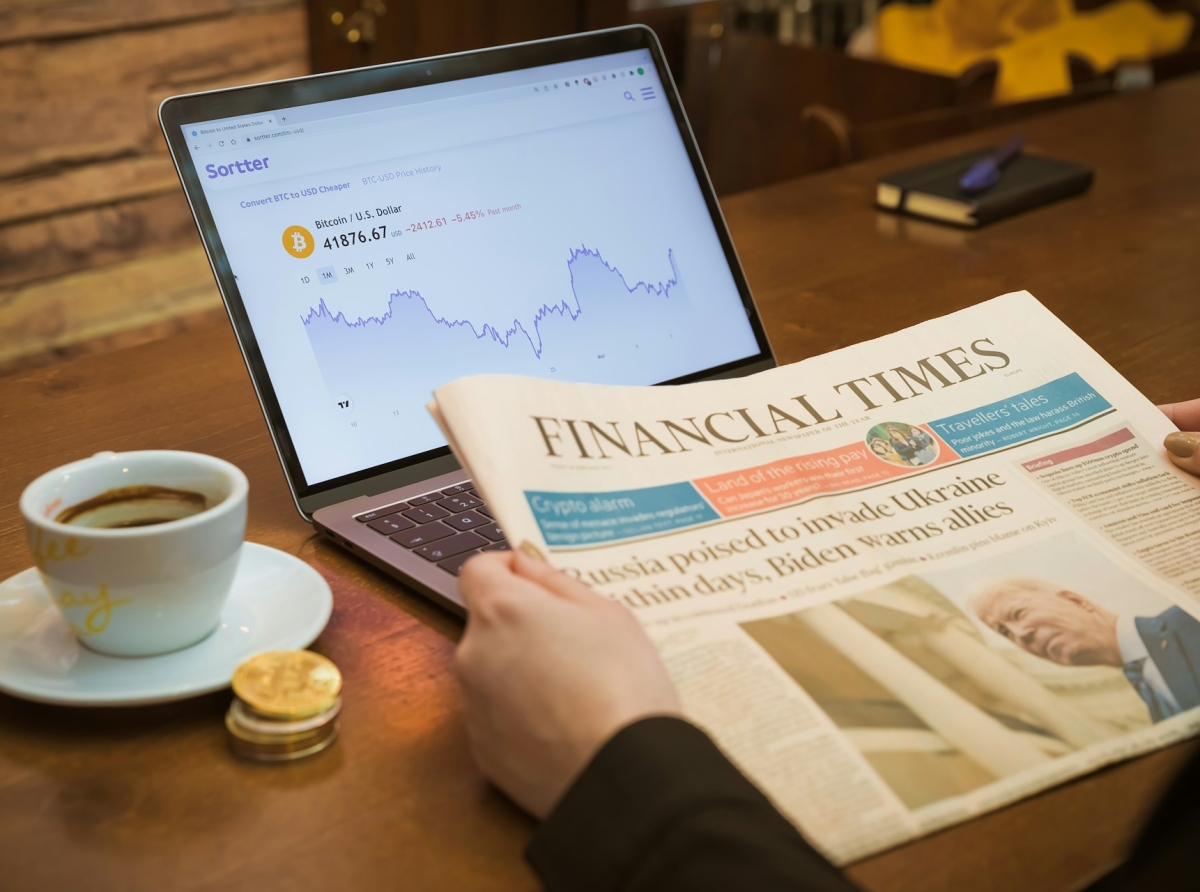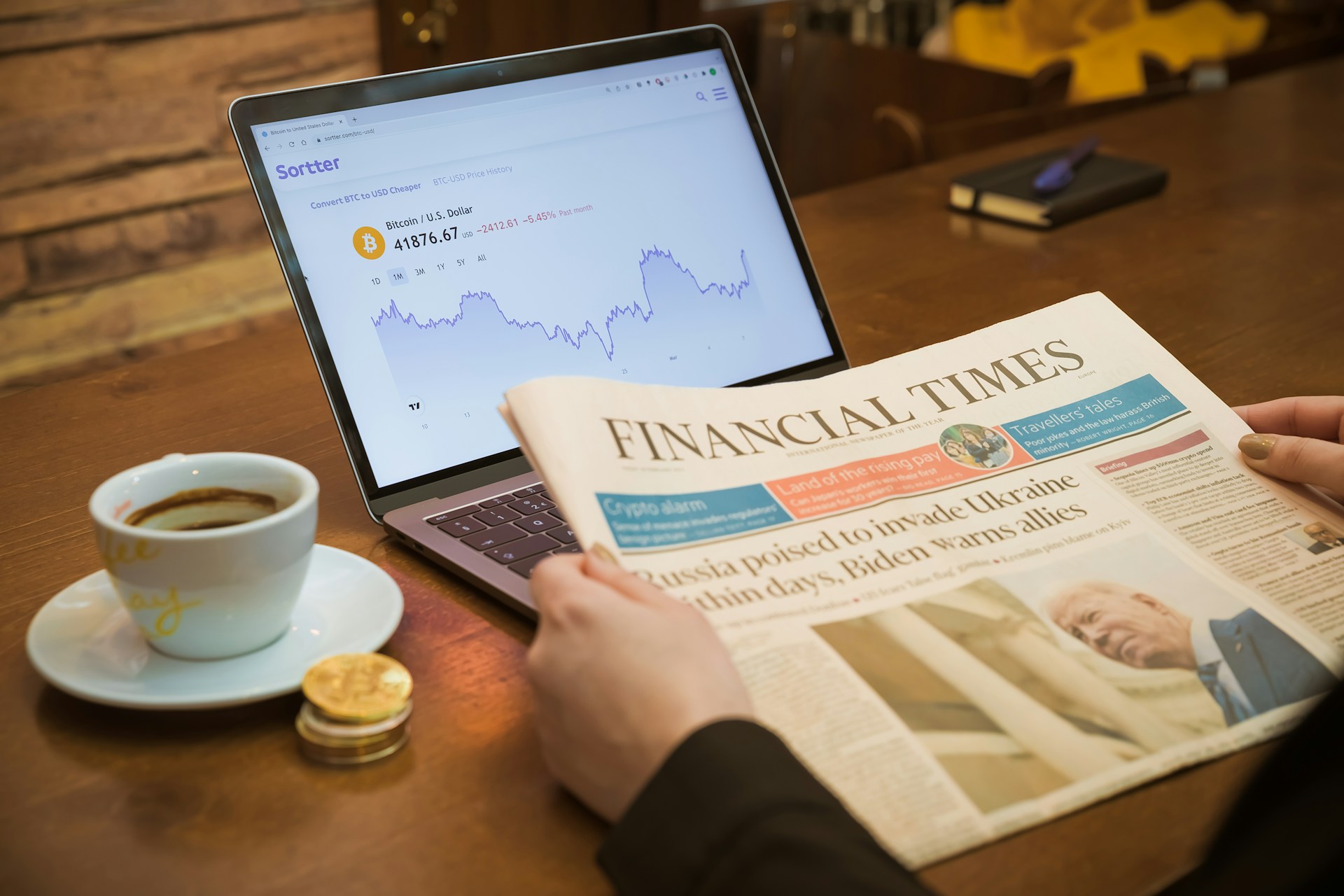
How Forex Trading Enhances Financial Literacy
Forex trading is not just about buying and selling currencies—it’s a powerful tool for improving financial literacy. Engaging in the Forex market requires traders to understand economic principles, risk management, and global financial dynamics.
This process naturally fosters a deeper understanding of how money works, empowering individuals to make smarter financial decisions both in trading and in everyday life.
In this article, we’ll explore how Forex trading contributes to financial education and why it’s an invaluable skill-building activity.
This process naturally fosters a deeper understanding of how money works, empowering individuals to make smarter financial decisions both in trading and in everyday life.
In this article, we’ll explore how Forex trading contributes to financial education and why it’s an invaluable skill-building activity.

How Forex Trading Enhances Financial Literacy
What Is Financial Literacy?
Financial literacy refers to the ability to understand and effectively use financial skills, such as budgeting, saving, investing, and managing debt. It’s a critical life skill that helps individuals achieve financial stability and independence. Unfortunately, many people lack basic financial knowledge, which can lead to poor decision-making and financial struggles.Forex trading serves as a practical and immersive way to develop financial literacy. By participating in the world’s largest financial market, traders gain hands-on experience with concepts like currency valuation, interest rates, and market psychology—skills that are directly transferable to personal finance management.
Key Ways Forex Trading Improves Financial Literacy
Understanding Global EconomicsForex trading introduces traders to the interconnectedness of global economies. Currency values are influenced by factors such as inflation, interest rates, geopolitical events, and trade balances. To succeed in Forex, traders must stay informed about these factors, which deepens their understanding of macroeconomics and its impact on financial markets.
Learning Risk Management
One of the most valuable lessons Forex trading teaches is risk management. Traders quickly learn that preserving capital is more important than chasing profits. Concepts like position sizing, stop-loss orders, and diversification become second nature, equipping traders with skills they can apply to other areas of personal finance, such as investing in stocks or real estate.
Developing Discipline and Patience
Successful Forex trading requires discipline and patience—qualities that are essential for financial success. Traders learn to follow a plan, avoid emotional decision-making, and wait for the right opportunities. These habits translate into better money management in daily life, such as sticking to a budget or resisting impulse purchases.
Analyzing Data and Trends
Forex traders rely on technical and fundamental analysis to make informed decisions. Technical analysis involves interpreting charts and patterns, while fundamental analysis examines economic indicators and news events. These analytical skills enhance critical thinking and help traders make data-driven decisions—a skill that’s useful in evaluating investment opportunities or managing personal finances.
Understanding Leverage and Its Risks
Forex brokers often offer leverage, allowing traders to control larger positions with smaller amounts of capital. While leverage can amplify profits, it also increases risks. Learning how to use leverage responsibly teaches traders about the dangers of overextending themselves financially—a lesson that applies to using credit cards, loans, or mortgages.Exposure to Diverse Financial Instruments
Forex trading isn’t limited to currencies; many platforms also offer commodities, indices, and cryptocurrencies. This exposure broadens traders’ knowledge of different asset classes and investment strategies, helping them build a well-rounded financial skill set.
Real-Life Benefits of Forex-Inspired Financial Literacy
The financial literacy gained through Forex trading has practical applications beyond the market. Here are some examples:
Better Budgeting and Saving
Traders who understand the importance of capital preservation are more likely to create budgets, save consistently, and avoid unnecessary expenses. The discipline developed in trading carries over into personal finance management.
Improved Investment Decisions
Forex traders often expand their portfolios to include stocks, bonds, or ETFs. Their analytical skills and understanding of market dynamics enable them to make informed investment decisions, maximizing returns while minimizing risks.
Confidence in Financial Planning
Understanding how global events and economic policies affect currency values gives traders a broader perspective on financial planning. They become better equipped to navigate challenges like inflation, recessions, or currency devaluation.
Entrepreneurial Skills
Many Forex traders transition into entrepreneurship, applying their financial knowledge to start businesses or manage projects. Skills like risk assessment, resource allocation, and strategic planning are directly transferable to entrepreneurial ventures.
Challenges That Teach Valuable Lessons
While Forex trading enhances financial literacy, it also presents challenges that serve as learning opportunities:Market Volatility
Currency markets are highly volatile, teaching traders to adapt to uncertainty and think critically under pressure. These skills are invaluable in managing personal finances during economic downturns or unexpected expenses.
Emotional Control
The fast-paced nature of Forex trading forces traders to confront emotions like fear and greed. Overcoming these emotions builds resilience and improves decision-making in all areas of life.
Continuous Learning
Forex markets are constantly evolving, requiring traders to stay updated on new tools, strategies, and trends. This commitment to lifelong learning fosters intellectual curiosity and adaptability.
Tips for Maximizing Financial Literacy Through Forex Trading
If you’re considering Forex trading as a way to improve your financial literacy, here are some tips to get started:Start with Education
Before diving into live trading, take time to learn the basics of Forex, including terminology, trading strategies, and risk management. Online courses, books, and webinars are excellent resources.
Use a Demo Account
Practice trading with a demo account to gain experience without risking real money. This allows you to experiment with strategies and build confidence.
Focus on Fundamentals
Study economic indicators, central bank policies, and geopolitical events to understand what drives currency movements. This knowledge will deepen your understanding of global finance.
Track Your Progress
Keep a trading journal to analyze your performance, identify mistakes, and refine your strategies. This habit promotes self-awareness and continuous improvement.
Apply Lessons to Personal Finance
Use the skills you learn in Forex trading to manage your personal finances. For example, apply risk management principles to your savings or investment portfolio.
Conclusion
Forex trading is more than just a way to earn money—it’s a powerful educational tool that enhances financial literacy. By engaging with the Forex market, individuals gain practical knowledge of economics, risk management, and analytical thinking. These skills empower them to make smarter financial decisions, achieve greater financial stability, and pursue long-term goals with confidence.Whether you’re a beginner or an experienced trader, the lessons learned from Forex trading can transform the way you think about money. Embrace the journey, stay curious, and watch as your financial literacy grows alongside your trading expertise.









Report
My comments